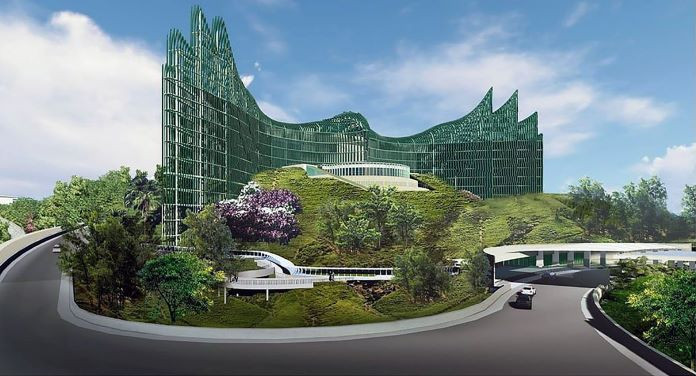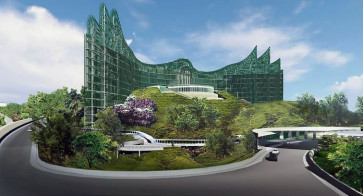Popular Reads
Top Results
Can't find what you're looking for?
View all search resultsPopular Reads
Top Results
Can't find what you're looking for?
View all search resultsNusantara: Carving out a legacy or heading toward disaster?
The IKN relocation and development project presents an opportunity for the government to start anew using technological innovations and sustainability principles, not repeat the same old outdated methods that are sinking Jakarta fast.
Change text size
Gift Premium Articles
to Anyone
T
he plan to build the Nusantara Capital City (IKN) in East Kalimantan was made official after the House of Representatives passed the bill on the nation’s new capital city into law on Jan. 18. President Joko Widodo announced the capital city relocation plan as part of his administration’s agenda following his reelection in 2019.
Jakarta arguably has a myriad of socioeconomic and environmental issues. In comparison, the new capital city, named Nusantara, has been deemed less vulnerable to natural disasters and is strategically located in the country’s geographical center. Additionally, relocating the capital city to East Kalimantan could redirect the government’s attention to other regions outside Java, attract investment to these areas and create a symbol of national identity and unity.
Jakarta’s advanced level of development and higher productivity has attracted many people. Statistics show that 256 people move to Jakarta per day, while an estimated 1.3 million people commute to Jakarta for work every day.
Unbalanced population growth and limited infrastructure are the suspected roots of Jakarta’s social and environmental issues, creating a need to develop a new capital.
The most prominent issue may be the fact that Jakarta is sinking rapidly. Considered the fastest sinking city in the world with a subsidence rate of 5 to 10 centimeters annually, parts of North Jakarta have sunken 2.5 meters over the last decade, or 25 centimeters per year.
Jakarta is located in a lowland area with an average height of around 7 meters above sea level, so it is already vulnerable to flooding during the rainy season. Depending on how greenhouse gas emissions are curbed, scientists predict that sea levels around the world are likely to rise between 26 and 82 centimeters by the century’s end. By then, Jakarta is expected to become an underwater megacity.
Another major problem Jakarta faces is living conditions. The Agrarian Affairs and Spatial Planning Ministry notes that more than half of Jakarta’s settlements consists of slums, whose residents are vulnerable to diseases due to inadequate sanitation and high crime rates.



















